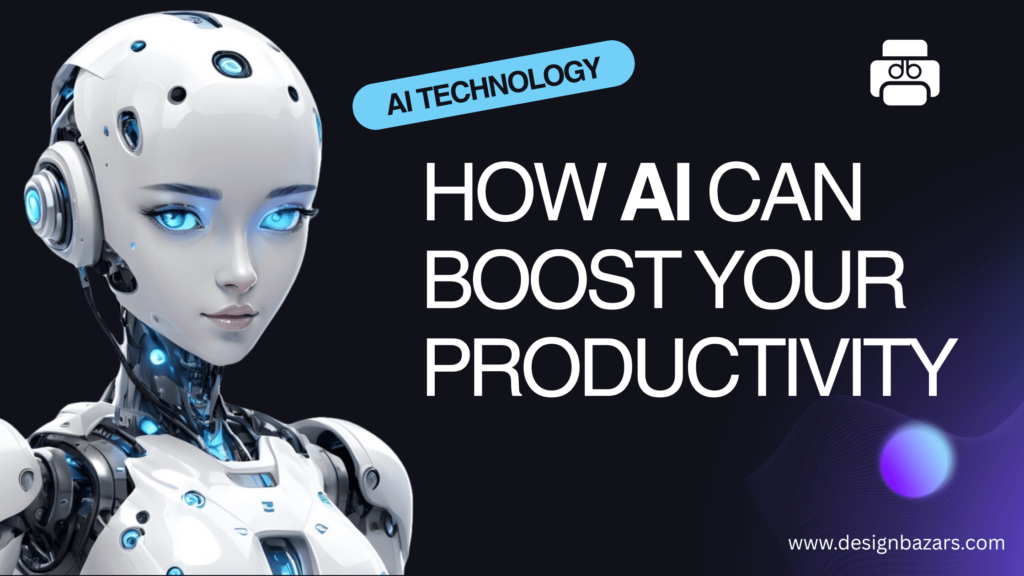AI can play a transformative role in boosting productivity across industries, workplaces, and personal life. Its potential is vast, offering innovative solutions that streamline tasks, enhance decision-making, and ultimately allow individuals and businesses to work smarter, not harder. At its core, artificial intelligence refers to the ability of machines to perform tasks that traditionally required human intelligence, such as problem-solving, learning, and decision-making. As AI continues to evolve, its capacity to improve productivity grows exponentially, bringing new possibilities and efficiencies to virtually every sector.
One of the most significant ways AI can enhance productivity is by automating repetitive and mundane tasks. In any work environment, there are countless tasks that consume a substantial amount of time but do not require much creativity or problem-solving. These tasks, often referred to as “low-value” tasks, can include data entry, file organization, scheduling, and responding to standard customer inquiries. By employing AI-driven tools like chatbots, automated scheduling assistants, and AI-based software for data management, these repetitive tasks can be automated, allowing employees to focus on more important, high-value activities. For example, in customer service, AI-powered chatbots can handle simple customer queries 24/7, freeing up human agents to handle more complex issues that require empathy, creative thinking, or advanced problem-solving.
In addition to automating routine tasks, AI also excels in augmenting human capabilities. By analyzing vast amounts of data quickly and efficiently, AI can provide insights that might take a human hours or even days to uncover. This capability can be incredibly useful in sectors like finance, healthcare, and marketing, where making data-driven decisions is critical. For example, AI tools can analyze sales data to help marketing teams optimize campaigns, or analyze patient health records to assist doctors in diagnosing diseases faster and more accurately. The ability to sift through large datasets and spot trends or patterns that may not be immediately obvious allows businesses to make better, more informed decisions at a faster pace.

Another way AI enhances productivity is by enabling better time management. Time management is a critical aspect of productivity, and AI tools can help people manage their schedules more effectively. For instance, AI-powered personal assistants like Google Assistant, Siri, and Alexa can help organize daily tasks, set reminders, and even prioritize activities. These smart assistants can learn from user behavior, adapt to preferences, and suggest the most efficient ways to accomplish goals based on past activities. Additionally, AI can help streamline project management by predicting project timelines, assigning tasks to the appropriate team members, and identifying potential roadblocks before they become significant issues. This predictive capability ensures that time and resources are allocated efficiently, which is especially valuable in dynamic and fast-paced work environments.
AI also has the potential to enhance creativity, which may seem counterintuitive at first. While AI is often associated with automation and efficiency, it can also serve as a powerful tool for innovation and idea generation. In industries such as design, writing, and content creation, AI tools like generative design software, natural language processing models, and AI-powered art generators are helping creative professionals explore new ideas and refine their work. For example, AI can assist designers by generating new design concepts based on specific parameters, helping them visualize ideas that might not have occurred to them otherwise. Similarly, in writing, AI can assist in generating content, providing suggestions, or even completing drafts, allowing writers to focus more on the overarching structure and message of their work. This blend of human creativity and AI capabilities creates an environment where individuals can amplify their creative potential, breaking through mental barriers and accelerating the creative process.
Collaboration is another area where AI is making significant strides in boosting productivity. AI-powered collaboration tools enable teams to work together more effectively, whether they are in the same office or spread out across the globe. Tools like AI-driven translation services, real-time document editing, and virtual meeting assistants help bridge communication gaps, ensuring that teams can work seamlessly despite differences in time zones, languages, or locations. AI can also facilitate knowledge sharing by organizing and categorizing documents, emails, and other communications, making it easier for team members to find the information they need when they need it. In large organizations, AI systems can help reduce the friction of collaboration by suggesting connections between team members with complementary skills and expertise, fostering an environment of synergy and cross-functional cooperation.
Beyond the workplace, AI can be a valuable ally in personal productivity as well. Many individuals use AI-powered apps to help them stay on top of personal tasks and commitments, such as meal planning, fitness tracking, and even managing their personal finances. AI-driven personal finance apps, for example, can help individuals track spending, create budgets, and identify potential savings opportunities. These tools can learn from users’ spending habits, providing tailored recommendations that align with their financial goals. In the realm of health and wellness, AI-powered apps can help people track exercise routines, monitor their diet, and provide personalized workout plans that adapt to progress over time. With these tools, individuals can optimize their daily routines and maintain a more balanced, productive lifestyle.
In industries like manufacturing and logistics, AI is also driving productivity by optimizing supply chains, improving inventory management, and enhancing predictive maintenance. For instance, AI-driven systems can predict when machinery or equipment is likely to break down, allowing companies to perform maintenance before issues arise, minimizing downtime. In logistics, AI can improve route optimization for delivery vehicles, ensuring that products are delivered in the most efficient manner possible. AI also allows manufacturers to optimize production lines, reducing waste and ensuring that resources are used in the most cost-effective way.
Despite the many benefits AI brings to productivity, it’s important to recognize that it’s not a one-size-fits-all solution. Successful implementation of AI requires careful planning, understanding, and integration into existing workflows. It is crucial to ensure that AI tools are aligned with the goals and objectives of the organization or individual, and that proper training is provided to maximize their potential. Additionally, there are ethical considerations to keep in mind when implementing AI, such as data privacy, transparency, and the impact on employment.
In conclusion, AI offers transformative potential to boost productivity in numerous ways, ranging from automating routine tasks to enhancing decision-making, improving time management, and fostering creativity. Its integration into both personal and professional environments can save time, improve efficiency, and ultimately help individuals and organizations achieve more with fewer resources. As AI continues to evolve, its ability to drive productivity is bound to expand, offering exciting new opportunities for innovation and success across diverse industries.














